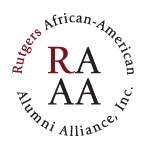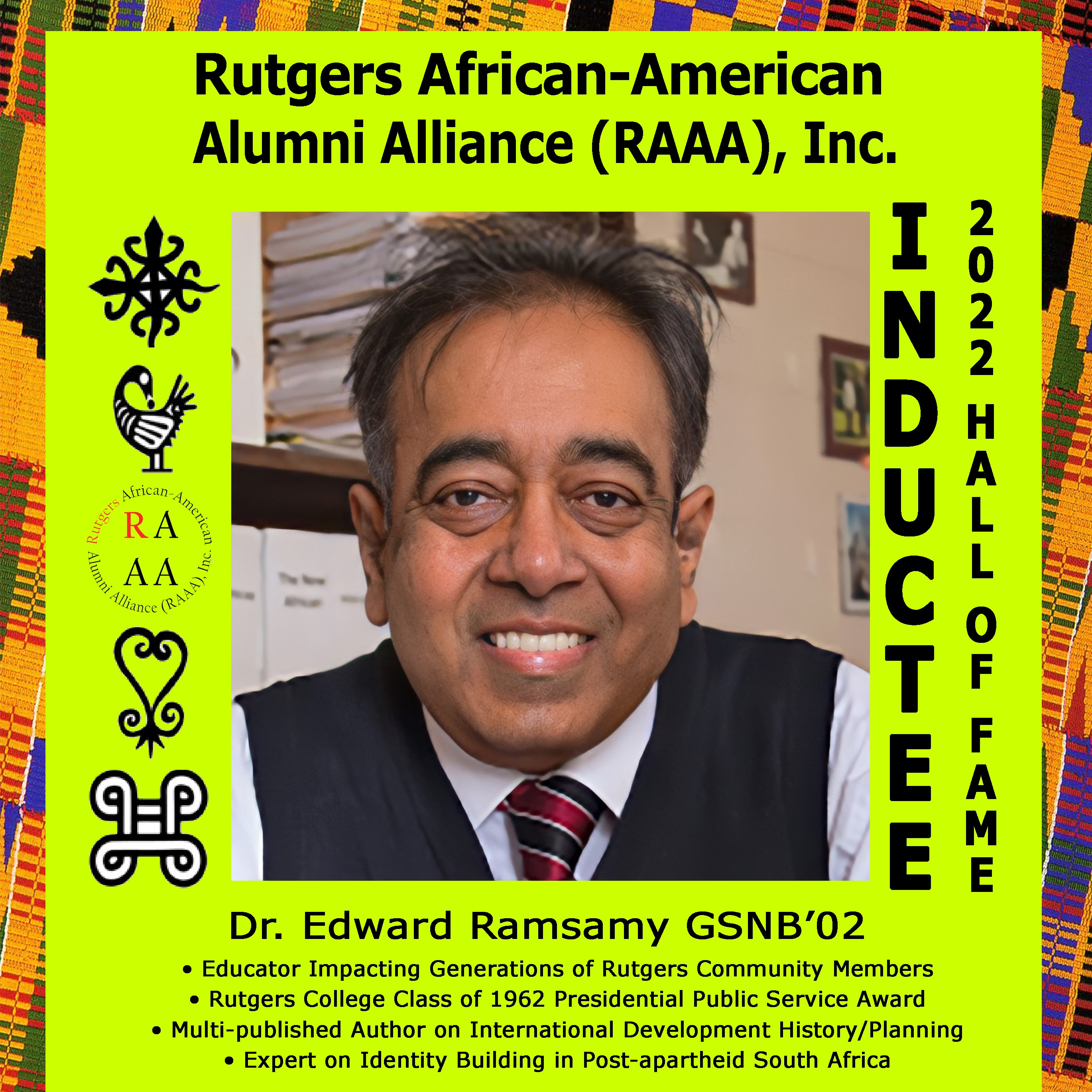Dr. Edward Ramsamy is a third-generation South African. His grandparents immigrated to South Africa in the late 1800s. They were part of a large wave of South Asian laborers indentured to work on sugar and tea plantations in British colonies throughout the Indian Ocean, Southern Africa and the Caribbean. He grew up under South Africa’s notorious policy of apartheid, where every aspect of one’s life was circumscribed by one’s racial identity. Dr. Ramsamy completed his undergraduate education at the University of Durban Westville (now named the University of KwaZulu Natal), earning a B.A. and B.A. (Honors) degree in geography. He then came to the United States to pursue graduate studies in urban planning at the Bloustein School (Rutgers University). He earned a master’s degree in city and regional planning (MCRP) in 1992 and a Ph.D. (2002) in planning and public policy from the Bloustein School.
His teaching and research interests include international development planning and the geographies of globalization; the political economy of transition and nation-building in post-colonial/developing societies; and the comparative politics of identity and race relations in South Africa and the United States. He is the author of the book The World Bank and Urban Development: From Projects to Policy (Routledge, 2006). He co-edited The Black Experience in America (Kendall Hunt, 2006/2011) and edited the Africa Volume of a 4 volume encyclopedia series on the Cultural Sociology of the Middle East, Asia and Africa (Sage, 2012). He has published numerous articles on regional integration in southern Africa, as well as racial, ethnic, and national identity in post-apartheid South Africa. His current research examines the role of the United Nations in the global anti-apartheid movement. He is also the recipient of numerous honors and awards, including fellowships from the Social Science Research Council, the 21st Century Trust (Cambridge University England), the Center for the Critical Analysis of Contemporary Culture, and the Institute for Research on Women.
Dr. Edward Ramsamy is currently Associate Professor and Chair of the Africana Studies Department and a member of the graduate faculties of Geography and Urban Planning and Policy Development at the Bloustein School (Rutgers, New Brunswick). He has served as Chair since 2014 and served as Vice-Chair of the Department from 2008 to 2014. In addition to his service within the Africana Studies Department, he has also been involved in several programs and initiatives to promote cross-cultural understanding, diversity and inclusion at Rutgers and beyond. Dr. Ramsamy served as the chair of the Committee to Advance our Common Purposes, a university-wide committee whose mission is to recognize, promote and build the values of diversity, equity, and inclusion in the university community. He also co-chaired Chancellor Richard Edward’s 2017 Task Force on Inclusion and Community Values. Beyond Rutgers, he was a founding trustee of the Global Literacy Project and a member of the Episcopal Diocese of New Jersey’s Anti-Racism Task Force. Dr. Ramsamy’s service to the community has been recognized by awards from the ODASIS Program, the Educational Opportunity Fund, Rutgers Future Scholars, the Vice Chancellor for Undergraduate Education, the Committee to Advance Our Common Purposes, and the NAACP. He was also the recipient of the Rutgers College Class of 1962 Presidential Public Service Award.
The African American struggle for human rights, democracy and self-determination was a source of hope and inspiration for South Africans of Dr. Ramsamy’s generation. Numerous Civil Rights Movement icons inspired resistance against South Africa’s notorious apartheid system. Among these icons was Rutgers’ own Paul Robeson. Edward Ramsamy has worked tirelessly to promote Paul Robeson’s life and legacy at Rutgers. As chair of the Africana Studies Department, he instituted the Paul Robeson Distinguished Lecture Series, which has brought luminaries such as Harry Belafonte to Rutgers. He also worked closely with the Class of 1971 and the RAAA to establish the Paul Robeson Plaza on College Avenue. Dr. Ramsamy continues to promote Paul Robeson’s legacy; this Fall, he is co-teaching a Byrne Seminar titled “Paul Robeson as a Global Citizen” with Susan Robeson (Paul Robeson’s granddaughter).

